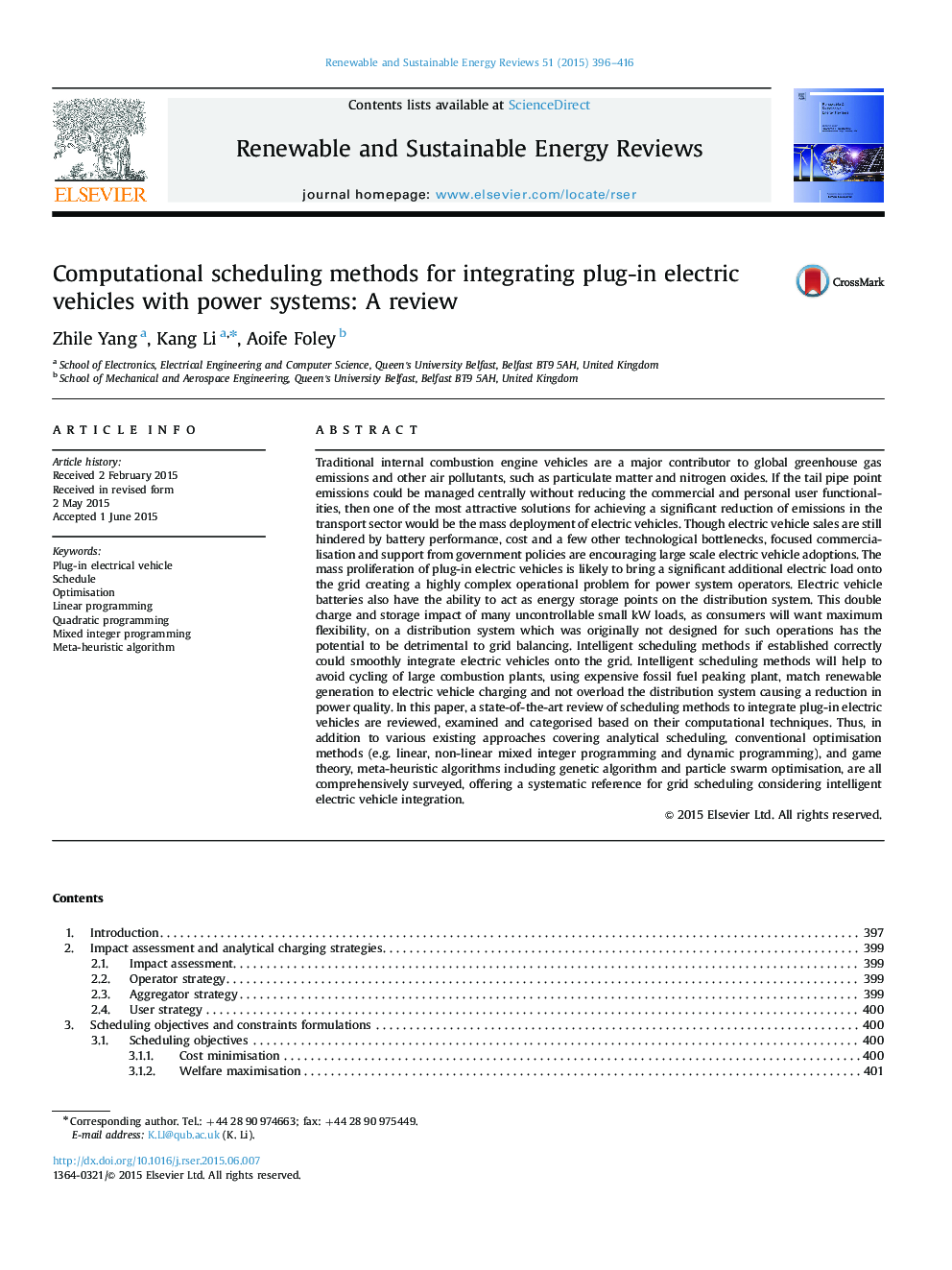| Article ID | Journal | Published Year | Pages | File Type |
|---|---|---|---|---|
| 8115714 | Renewable and Sustainable Energy Reviews | 2015 | 21 Pages |
Abstract
Traditional internal combustion engine vehicles are a major contributor to global greenhouse gas emissions and other air pollutants, such as particulate matter and nitrogen oxides. If the tail pipe point emissions could be managed centrally without reducing the commercial and personal user functionalities, then one of the most attractive solutions for achieving a significant reduction of emissions in the transport sector would be the mass deployment of electric vehicles. Though electric vehicle sales are still hindered by battery performance, cost and a few other technological bottlenecks, focused commercialisation and support from government policies are encouraging large scale electric vehicle adoptions. The mass proliferation of plug-in electric vehicles is likely to bring a significant additional electric load onto the grid creating a highly complex operational problem for power system operators. Electric vehicle batteries also have the ability to act as energy storage points on the distribution system. This double charge and storage impact of many uncontrollable small kW loads, as consumers will want maximum flexibility, on a distribution system which was originally not designed for such operations has the potential to be detrimental to grid balancing. Intelligent scheduling methods if established correctly could smoothly integrate electric vehicles onto the grid. Intelligent scheduling methods will help to avoid cycling of large combustion plants, using expensive fossil fuel peaking plant, match renewable generation to electric vehicle charging and not overload the distribution system causing a reduction in power quality. In this paper, a state-of-the-art review of scheduling methods to integrate plug-in electric vehicles are reviewed, examined and categorised based on their computational techniques. Thus, in addition to various existing approaches covering analytical scheduling, conventional optimisation methods (e.g. linear, non-linear mixed integer programming and dynamic programming), and game theory, meta-heuristic algorithms including genetic algorithm and particle swarm optimisation, are all comprehensively surveyed, offering a systematic reference for grid scheduling considering intelligent electric vehicle integration.
Keywords
Related Topics
Physical Sciences and Engineering
Energy
Renewable Energy, Sustainability and the Environment
Authors
Zhile Yang, Kang Li, Aoife Foley,
